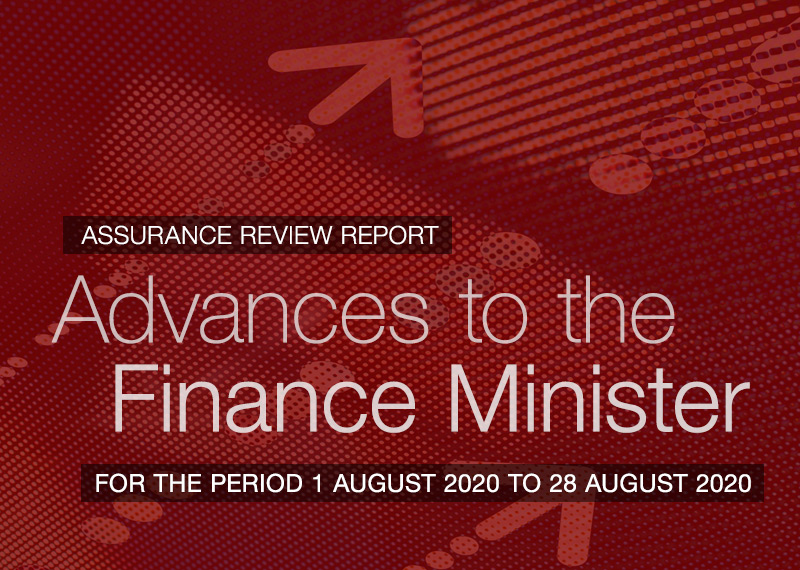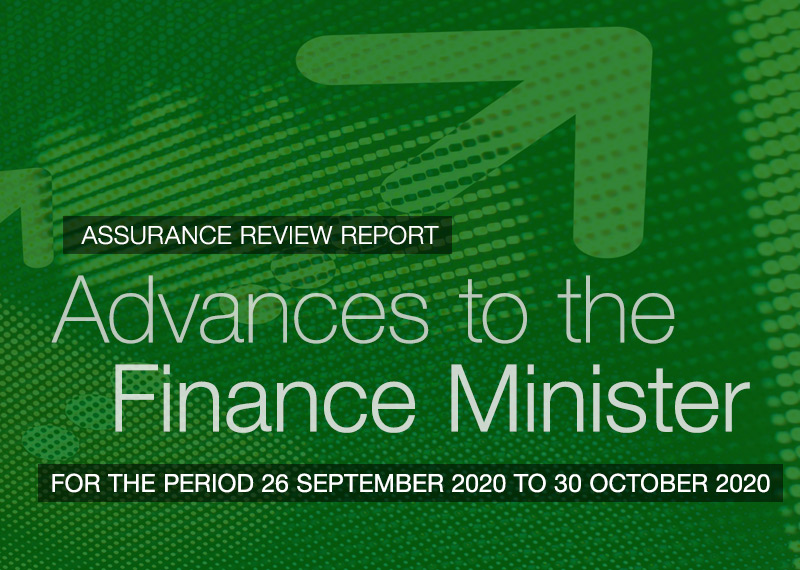Browse our range of reports and publications including performance and financial statement audit reports, assurance review reports, information reports and annual reports.
The Auditor-General undertook a limited assurance review of the Department of Agriculture and Water Resources’ assessment of the performance of New South Wales under the National Partnership Agreement on Implementing Water Reform in the Murray-Darling Basin relevant to the protection and use of environmental water for the 2014–15 and 2015–16 financial years.
Please direct enquiries through our contact page.
The objective of the audit was to assess the effectiveness of the management of community intelligence by the Tax Office.
The Auditor-General undertook a limited assurance review of the Department of Finance’s reporting and administration of the Advances to the Finance Minister (AFM) for the Period 1 August 2020 to 28 August 2020.
Please direct enquiries through our contact page.
The Auditor-General undertook a limited assurance review of the Department of Finance’s reporting and administration of the Advances to the Finance Minister (AFM) for the Period 26 September 2020 to 30 October 2020.
Please direct enquiries through our contact page.
The objective of the audit was to assess the effectiveness of the design process for the Rural Research and Development for Profit Programme, including performance measurement and reporting arrangements.
Please direct enquiries relating to reports through our contact page.
The audit objective was to assess the effectiveness of Defence’s management of the acquisition of medium and heavy vehicles, associated modules and trailers for the Australian Defence Force.
Please direct enquiries relating to reports through our contact page.
The Auditor-General responded on 17 April 2025 to correspondence from Senator the Hon Michaelia Cash dated 21 March 2025, requesting that the Auditor-General conduct an investigation to examine the Incolink grant.
Please direct enquiries through our contact page.
The Auditor-General responded on 18 June 2025 to correspondence from Senator David Shoebridge dated 23 May 2025, requesting that the Auditor-General conduct a review of the expenditure and disclosures of the Federal Court.
Please direct enquiries through our contact page.
The Auditor-General responded on 2 May 2022 to correspondence from Senator Rex Patrick dated 5 April 2022, requesting that the Auditor-General conduct an investigation to examine the process in making statutory and other senior appointments across the whole government over the six months preceding the application of caretaker conventions prior to the 2022 Federal election.
Please direct enquiries relating to requests for audit through our contact page.
The objective of this audit was to examine the effectiveness of selected non-corporate Commonwealth entities' arrangements for managing cyber security risks within their procurements and specific contracted providers under the Protective Security Policy Framework (PSPF).
Please direct enquiries through our contact page.
The audit objective was to assess the effectiveness of the Department of Health’s records management arrangements, including Health’s progress in transitioning to digital records management.
Please direct enquiries relating to reports through our contact page.
The audit objective was to assess the effectiveness of the Department of Veterans’ Affairs administration of the Repatriation Transport Scheme.
Please direct enquiries relating to reports through our contact page.
The ANAO gifts and benefits policy recommends that ANAO employees do not accept any gifts or benefits in their role as an employee of the ANAO. Employees are required to report any offered gift or benefit (whether accepted or refused) within 10 business days of the offer being made, through an internal gifts and benefits register. The data collected through the internal register is reported to the ANAO’s Executive Board of Management, and a subset of the data is reported publicly here.
Please direct enquiries through our contact page.
The audit objective was to assess the departments of Health and Human Services’ administration, including oversight and monitoring arrangements, for the Indemnity Insurance Fund.
Please direct enquiries relating to reports through our contact page.
The objective of the audit was to assess the effectiveness of the Department of the Environment and Energy’s arrangements for the preparation and reporting of Australia’s greenhouse gas emissions estimates and projections.
Please direct enquiries relating to reports through our contact page.
The objective of the audit was to assess whether select Australian Government entities are effectively managing and controlling the use of Commonwealth credit and other transaction cards for official purposes in accordance with legislative and policy requirements.
Please direct enquiries relating to reports through our contact page.
The objective of the audit was to assess the effectiveness of the Australian Securities and Investments Commission’s administration of enforceable undertakings.
Please direct enquiries relating to reports through our contact page.
Procurement is a significant public sector activity worth $47.4 billion in 2016–17. This information report seeks to provide greater transparency on procurement activity in the Australian public sector. This information report is neither an audit nor an assurance review and presents no conclusions or opinions. The report presents in a variety of ways, including tables and figures, publicly available data from public sector procurement activity.
Please direct enquiries through our contact page.
The audit examined whether COVID-19 procurements to increase the National Medical Stockpile (NMS) were consistent with the proper use and management of public resources and whether COVID-19 deployments of the NMS were effective.
Please direct enquiries through our contact page.
The objective of the audit was to assess the Moorebank Intermodal Company’s achievement of value for money and management of probity in its operations and procurement activities.
Please direct enquiries through our contact page.
The objective of the audit was to examine the effectiveness of spectrum reallocation to support the deployment of 5G services.
Please direct enquiries through our contact page.
The objective of the audit was to assess whether selected entities had appropriately justified the use of limited tender procurement and whether processes adopted met the requirements of the Commonwealth Procurement Rules.
Please direct enquiries relating to reports through our contact page.
The Auditor-General responded on 22 November 2019 to correspondence from Senator Katy Gallagher dated 25 October 2019, requesting that the Auditor-General conduct an investigation to examine government spending on external contractors and consultants.
Please direct enquiries relating to requests for audit through our contact page.
The Auditor-General (A/g) responded on 24 September 2015 to correspondence from Senator Glenn Lazarus on 10 September 2015 regarding National Stronger Regions Fund.
Please direct enquiries relating to requests for audit through our contact page.
The Auditor-General responded on 20 August 2021 to correspondence from Mr Julian Hill MP dated 26 July 2021, requesting that the Auditor-General conduct an investigation to examine the efficiency, effectiveness, quality and integrity of partner visa processing by the Department of Home Affairs.
The Auditor-General has received follow-up correspondence from Mr Julian Hill MP dated 27 August 2021.
Please direct enquiries relating to requests through our contact page.
The objective of this audit was to assess the effectiveness of procurement complaints handling by the Australian Communications and Media Authority, the Department of Finance, the Department of Industry, Science and Resources and the Reserve Bank of Australia.
Please direct enquiries through our contact page.
The policy for responsible use of artificial intelligence (AI) in government in government includes mandatory requirements to nominate accountable officials and publish AI transparency statements. This statement provides details of the Australian National Audit Office (ANAO) implementation of these policy requirements.
Please direct enquiries through our contact page.
The objective of the audit was to assess the effectiveness of the Australian Communications and Media Authority’s regulation of unsolicited communications.
Please direct enquiries relating to reports through our contact page.
The objective of the audit was to assess the effectiveness of the award of funding under the first round of the Safer Streets programme.
Please direct enquiries relating to reports through our contact page.
The objective of the audit was to assess the effectiveness of the administration of procurement initiatives to support opportunities for Indigenous Australians.
Please direct enquiries through our contact page.




















